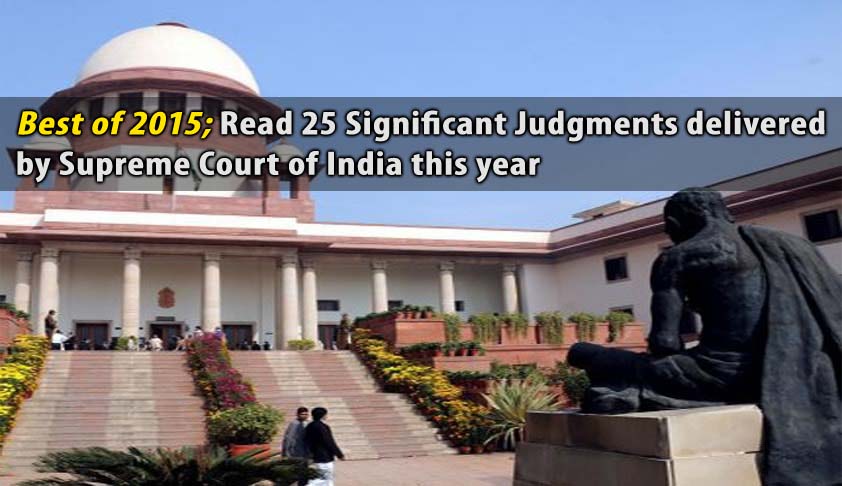Best of 2015; Read 25 Significant Judgments delivered by Supreme Court of India this year
Ashok KM
28 Dec 2015 4:52 PM IST

Next Story
28 Dec 2015 4:52 PM IST
As 2015 is going to end soon and we are about to see the dawn of 2016, it is the apt time to have a relook at what all we did this year. For humans living in legal world, viz. Lawyers, reporters and Law student, it is apt time to re look at what Supreme Court said this year. What new interpretation of law did the Apex Court offer and what Law has been struck down? We at LiveLaw,...
